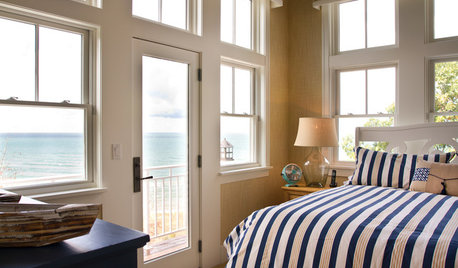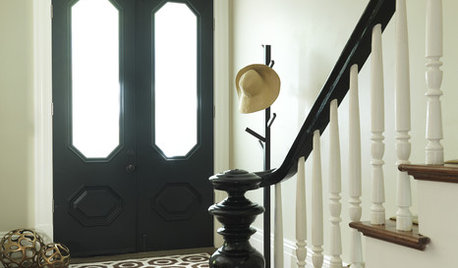Article about housing busts and recoveries in the past
mostone
16 years ago
Related Stories

GARDENING GUIDESWe Bust 4 More Native Plant Myths
Have you been taken in by these fallacies about gardening with native plants?
Full Story
COLORBusted! Get the Facts for 8 Common Color Myths
Give hearsay the heave-ho — let these expert explanations improve your paint and decor choices instead
Full Story
ENTERTAINING8 Stress-Busting Tips for Hosting Small Gatherings
Make entertaining easy with these ideas for casual get-togethers
Full Story
BEDROOMSRest Easy: Myth Busting for Bedding and Mattresses
We put to bed some of the misconceptions that may be keeping you from a good night's sleep
Full Story
GARAGES8 Clutter-Busting Garage Storage Solutions
Never trip over tools or bumble through boxes again. These organizers, cabinets, shelves and boards will keep your garage neat and clear
Full Story
GREEN BUILDING6 Green-Roof Myths, Busted
Leaky, costly, a pain to maintain ... nope, nope and nope. Get the truth about living roofs and see examples from simple to elaborate
Full Story
HEALTHY HOMEWhat You Need to Know About Dust and How to Fight It
Breathe easier with these 10 tips for busting mites, dander and other microscopic undesirables
Full Story
DISASTER PREP & RECOVERYRecovery Tips From a Hurricane Survivor
Redefining ‘normal’ is key when you’re dealing with any kind of damage from a natural disaster
Full Story
ENTRYWAYSGrand Entry Elements: Newel Posts Past and Present
They once spoke to wealth and class, but newel posts today say more about individual style
Full Story
MATERIALSInsulation Basics: What to Know About Spray Foam
Learn what exactly spray foam is, the pros and cons of using it and why you shouldn’t mess around with installation
Full Story







Happyladi
mostoneOriginal Author
Related Professionals
Martinsville Architects & Building Designers · Burlington General Contractors · Asheboro General Contractors · Florham Park General Contractors · Millville General Contractors · Montebello General Contractors · Mount Vernon General Contractors · Nashua General Contractors · Northfield General Contractors · Randolph General Contractors · Redding General Contractors · Cherry Hill Home Stagers · Mountain Home Home Stagers · Garden City Interior Designers & Decorators · Van Wert Interior Designers & Decoratorsmomto6
marys1000
Mimou-GW
cheapheap
jakkom
dabunch
chisue
jakkom
galore2112
jy_md
skylyn
try_99
User